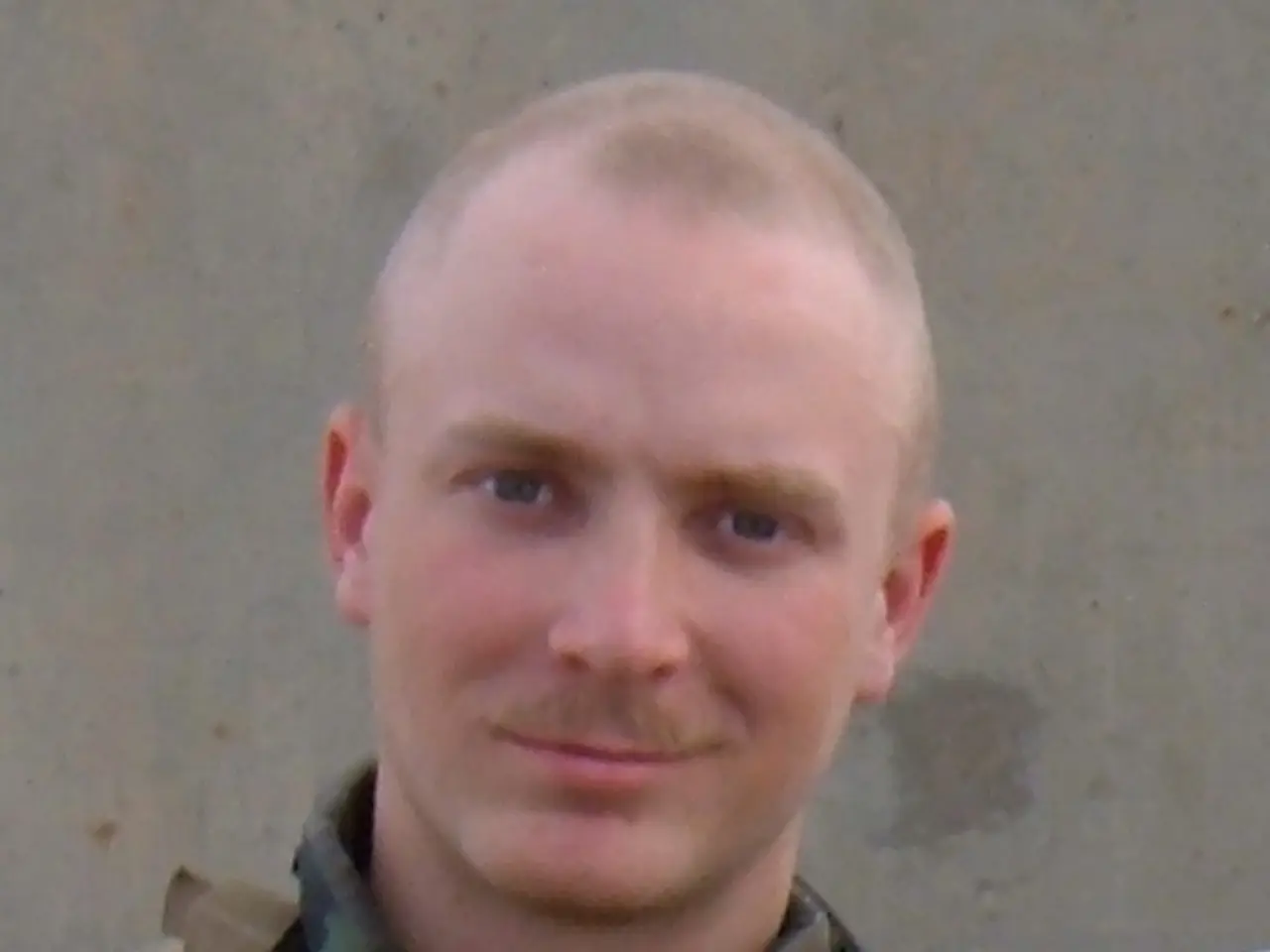American Palestinian refugee in a state of anxiety over safety while pursuing asylum in the United States
In the midst of the ongoing U.S. immigration crackdown, a Gaza war survivor named Jaser Abu Mousa faces significant challenges in his quest for asylum. Abu Mousa, a scholar and peace fellow at Yale University, lost his family in the 202x Gaza conflict and is now battling to secure legal protection.
Before the war, Abu Mousa's wife was a poet, architect, and teacher, while his mother, Heyam Al-Madhoun, was a resilient woman who had endured displacement six times. His eldest son, Hmaid, had completed high school, but was unable to leave Gaza with the family. Tragically, during the war, an Israeli airstrike hit Abu Mousa's house, claiming the lives of his wife, eldest son (18), 8-year-old son, Abdulrahman, 7-year-old nephew, Youssef, and his mother.
The scene of Abu Mousa identifying the bodies of his wife and son was recorded in a video, a heart-wrenching reminder of the trauma he endured. His surviving son, Abdallah, underwent three surgeries while they were in the United Arab Emirates for medical treatment.
Abu Mousa applied for asylum in the U.S. to remain after his fellowship visa expired in June. However, the shrinking U.S. asylum protections and stricter immigration policies create a hostile environment for Palestinian survivors like Abu Mousa. These policies likely limit avenues for asylum or refugee status by imposing stricter admissibility criteria, increased scrutiny, and potentially reduced humanitarian relief options.
The ongoing humanitarian crisis in Gaza, characterised by severe displacement, lack of basic necessities, and psychological trauma, underscores the urgent need for protection and asylum for survivors. However, U.S. immigration enforcement measures, part of a broader crackdown on immigration, reduce the likelihood that such individuals will find refuge quickly and securely.
Moreover, the international humanitarian response to Gaza remains fractured and insufficient, which increases the stakes for those fleeing the conflict. Palestinian refugees face longstanding obstacles to citizenship and asylum in various countries, and U.S. immigration policy as of 2025 reflects a tightening stance that directly impacts the chances of survivors gaining asylum.
Part of Abu Mousa's asylum case is his public criticism of Hamas, the militant group running Gaza. His brother, a radiologist, was imprisoned by Israeli forces in February last year, along with other medical staff, at Nasser Hospital. The ceasefire between Israel and Hamas collapsed in March, making reconstruction even more distant.
Before the war, Abu Mousa was working for a diplomatic mission and managed Swiss government aid projects. He was offered a fellowship at Yale University as a peace fellow, focusing on postwar reconstruction in Gaza, and arrived in January. The war in Gaza has resulted in the death of more than 61,000 Palestinians, according to Gaza health officials.
Despite these challenges, Abu Mousa continues to fight for asylum, embodying the resilience and determination that characterised his family before the war. His story serves as a stark reminder of the plight of Gaza war survivors and the urgent need for a more compassionate and effective response to the ongoing humanitarian crisis in Gaza.
Read also:
- United States tariffs pose a threat to India, necessitating the recruitment of adept negotiators or strategists, similar to those who had influenced Trump's decisions.
- Weekly happenings in the German Federal Parliament (Bundestag)
- Southwest region's most popular posts, accompanied by an inquiry:
- Discussion between Putin and Trump in Alaska could potentially overshadow Ukraine's concerns




